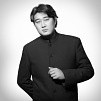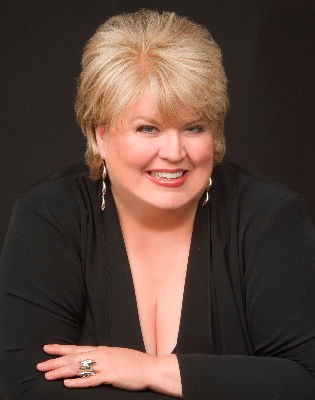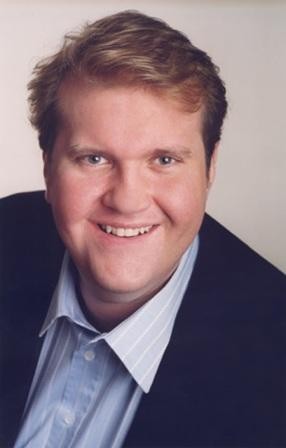Boston Symphony Orchestra at Carnegie Hall
De Burgos Replaces Ailing Levine for Elijah
By: Susan Hall - Apr 07, 2010
Elijahby Felix Mendelssohn
Rafael Fruhbeck de Burgos, Conductor
Tanglewood Festival Chorus, John Oliver, Conductor
Shenyang, bass, Elijah
Christine Brewer, soprano, The Widow, The Angel
Stephanie Blythe, mezzo, An Angel, Queen Jezebel
Anthony Dean Griffey, tenor, Obadiah, Ahab
Ensemble soloists:
Meredith Hansen, Soprano
Gigi Mitchell Velasco, Mezzo
Steven Tharp, Tenor
David Kravitz, Bass/Baritone
Ryan Williams, Boy soprano
Carnegie Hall
April 5, 2010
Mendelssohn's Elijah is a masterpiece. Mendelssohn began to think about which Biblical text to set as soon as he completed his first oratorio, Paul. Composer Robert Schumann, swept by the glory of Paul, could not wait to see what would come next. Mendelssohn's librettist suggested Elijah, and Mendelssohn, perhaps because he wanted to return to the Old Testament, agreed. It would be a decade before the work was completed.
Reverend Julius Schubring, a Lutheran pastor, took on the libretto and wrote Mendelssohn: "I have sought throughoutÂ…to introduce pieces, not only suitable to the particular situations in question, but such as might awaken an echo in the hearts of the hearers."
Mendelssohn did not sense enough drama and audacity. He wrote Schubring, "I would fain see the dramatic element more prominent, as well as more exuberant and defined." He undertook the completion of the libretto himself.
Mendelssohn saw Elijah as "a thorough prophet such as we might require in our own day – energetic and zealous, but also stern, wrathful and gloomy…in contrast to the current court rabble."
In contrast to St Paul, Mendelssohn didn't use a narrator, allowing the characters themselves to deliver the dramatic action. Elijah diverges from St Paul, too, in its broadly conceived musical cohesiveness.
Rafael Fruhbeck de Burgos conducted, at Carnegie, holding all the elements admirably together. Among his many credits, de Burges is conductor of the Tanglewood Music Center Orchestra.
The Tanglewood Chorus, celebrating its 40th anniversary, was a star this evening. John Oliver conducted. As the Chorus undertook the fugues and chorals that move this dramatic telling forward, we heard rich echoes of Handel and Bach, particularly the St. Matthew Passion.
The Oratorio opens operatically with an announcement from Elijah. Mendelssohn wanted to skip an overture all together, but was persuaded at the last minute to write one, which was placed in the unusual position following Elijah's with "Â…there shall be no dew or rain these years, but according to my word."
This introduced Shenyang, a bass discovered by Renee Fleming in a master class in China. He is now being nursed by the Met Opera and Julliard.
Shenyang is large, standing as tall as his hefty fellow soloists, Christine Brewer, Stephanie Blythe and Anthony Dean Griffey. He has a smooth, full voice and when he warmed up to sing the aria "For the mountains shall depart," he was lyrical and tender. Fleming's faith seems ready to be rewarded.
Some say we don't get more of Christine Brewer because she can't get off book in Wagner, but on book she has a voice that chills and enchants so deeply you want more. As both an Angel and Jezebel, Stephanie Blythe shows her magnificent instrument moving easily from heaven to hell. Anthony Dean Griffey made an interesting contrast to his cohorts, because his is the only head voice and the edge brings the ear to attention. Griffey was the only soloist having a visible spiritual experience, as he sat, head thrown back and face to the clouds of Carnegie, with a beatific smile.
In the tradition of the oratorio, pyrotechnics are not provided, but the soloists took advantage of the emotional extremes in their parts.
The one moment of humor comes after the chorus representing the apostates pleads with God to bring rain in a reverse Noah moment. When they complain that God is not listening, Elijah suggests they sing louder.
There is a delicious scene in which Elijah asks a young boy to look for the coming rain. Ryan Williams, a boy soprano, is multi-talented, a swimmer, comic artist and ballet dancer as well as a winger. He sang with eager anticipation for relief from the drought. "There is nothing. The heavens are as brass above me!", "The earth is as iron under me!" "No, there is nothing." and finally, "Behold, a little cloud ariseth now from the waters; it is like a man's hand! The heavens are black with clouds and with wind: the storm rusheth louder and louder."
This operatic gem of a scene draws from many different Biblical books: To give some sense of how hard Mendelssohn worked to develop a dramatic arc, here are the books from which the rain scene is woven: Jeremiah 14:22, 2 Chronicle 6:27,1 Kings 18:43, Deuteronomy 28:23, 2 Chronicles 6:26,27, 1 Kings 18:41, Psalm 28, 1, 1 Kings 18, 44,45; Psalm 106,2, and finally Psalm 93, 4. "The stormy billows are high; their fury is mighty. But the Lord is above them and Almighty!"
On the simplest level the Oratorio is unified through a network of recurring motifs. Two in particular, a rising triadic figure and a series of interlocking tritones, are used to identify the prophet Elijah and the catastrophic drought. On a second level, Mendelssohn stitches together several numbers to form larger complexes of through-composed music. The musical structure of Elijah is the largest Mendelssohn ever tried.
This oratorio has legs. Prince Albert pronounced Mendelssohn a second Elijah. Jenny Lind sang soprano in Elijah at a fundraiser for the Leipzig Conservatory Scholarship. (Mendelssohn had written one aria in B-F# with her in mind. F# was her favorite note.) The first winner of the scholarship was 16-year-old Arthur Sullivan, long before he was a gleam in the eye of Gilbert. George Bernard Shaw chimed in that Mendelssohn was an oratorio monger.
The modern Jerusalem Oratorio Choir has performed Elijah several times, most recently as part of a joint project with the choir and orchestra of the Christlichen Musik-und-Kunstakademie of Stuttgart. They perform in both Israel and Germany.
This is a perfect oratorio for joint Passover and Easter celebrations.




